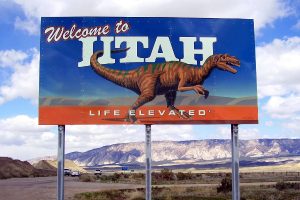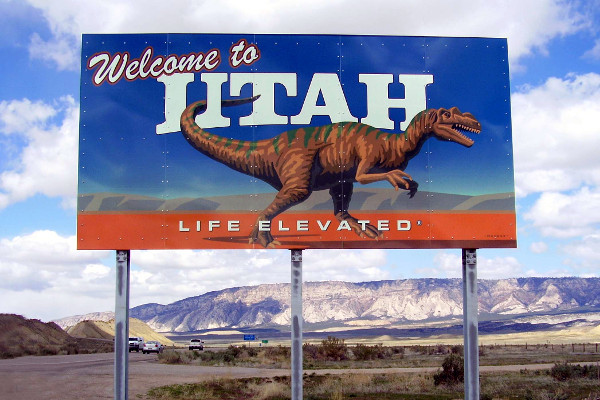 SALT LAKE CITY – The Deseret News, which identifies itself as the “first news organization and the longest continuously-operating business in the state of Utah,” would like you to know that “Yes, you can fight the growing pornography industry.”
SALT LAKE CITY – The Deseret News, which identifies itself as the “first news organization and the longest continuously-operating business in the state of Utah,” would like you to know that “Yes, you can fight the growing pornography industry.”
And how does one fight the porn industry? Why, by having one’s state legislature pass a nonbinding resolution which declares porn to be a public health crisis, of course! But, if you want to take real pride in such things, you can’t just be a Legislative Johnny Come Lately; you must lead the way.
“Utahns should be proud that their state Legislature was the first, three years ago, to proclaim pornography a public health crisis,” the Deseret News editorial board writes. “As a recent Deseret News story reported, 15 other states now have passed similar proclamations, recognizing that pornography in its various forms dehumanizes people and has numerous other deleterious effects.”
On this much, the Deseret News is (almost) correct – these nonbinding porn-as-public-health-crisis resolutions aren’t just for Utah anymore. Arkansas, Arizona, Florida, Idaho, Kansas, Kentucky, Louisiana, Missouri, Montana, Oklahoma, Pennsylvania, South Dakota, Tennessee and Virginia have all followed suit since Utah passed its resolution in 2016.
Now, if you’re a stickler for facts (and can count higher than 13), you may have noticed that’s a list of 14 states, not 15 – but the Deseret News is probably safe counting Ohio, which now has a similar resolution pending in its legislature, as being among its list of converts to Utah’s symbolic porn-fight cause.
To be fair, in its fight against porn, the Utah legislature didn’t just pass the 2016 resolution. It also later passed SB 185, a measure designed to allow “minors injured by pornography” to sue those who produced the pornography in question – or so the headlines about the bill would have you believe, at least.
A closer look at the language of SB 185 suggests plaintiffs would have a tough slog on their hands if they were to sue the operator of an adult website, the head of an adult entertainment studio, or anyone who produces adult content.
How so?
Under the statute, pornography is defined as “material that: (a) the average person, applying contemporary community standards, finds that, taken as a whole, appeals to prurient interest in sex; (b) is patently offensive in the description or depiction of nudity, sexual conduct, sexual excitement, sadomasochistic abuse, or excretion; and (c) taken as a whole does not have serious literary, artistic, political, or scientific value.”
If that definition rings familiar, it’s because you’ve heard it before — probably every time you’ve heard or read discussion of federal or state obscenity laws in this country.
As attorney Larry Walters told YNOT, the Utah law “basically adopts the Miller obscenity test in evaluating which pornographic materials can impose liability on producers” – and as Walters further noted, this similarity has its pros and cons, depending on whether one is a lawyer for the state defending the law against a lawsuit challenging its constitutionality, or a lawyer trying to apply the law on behalf of a client it in the context of civil litigation.
“Plaintiffs would have to demonstrate that the ‘pornography’ met all the elements of the Miller test in order to bring a claim,” Walters said. “This makes the statute more legally defensible, since obscenity does not enjoy First Amendment protections. However, obscenity convictions have been increasingly rare and difficult to obtain from juries in recent times. The widespread availability of adult materials on the internet makes it difficult for prosecutors to show that any such content violates community standards. Porn-viewing plaintiffs suing under the Utah law would encounter similar difficulties.”
Given the potential difficulty of proving one’s claims under this law, it probably shouldn’t be a surprise that we haven’t seen a spate of claims being filed in Utah against pornographers. And as Walters pointed out, if you’re a pornographer distributing material of the sort a jury might be likely to find obscene, you’ve got bigger potential problems than the prospect of a civil lawsuit filed by a citizen of Utah.
“Disseminating obscene material is already illegal at the federal level, and in most states,” Walters said. “This statute goes a bit further by creating a private right of action for consumers who suffer alleged injury from viewing the materials. This is a novel law, and there are open questions as to the test that will be used by the court to show causation of any injury to viewers. Given the difficulties in proving both obscenity and causation, plaintiffs face an uphill battle.”
So, in the final analysis, is this new law any more significant than Utah’s nonbinding resolution declaring porn to be a public health crisis?
“In sum, the Utah law seems to be more of a showpiece in the state’s war on porn, as opposed to a groundbreaking piece of legislation,” Walters said.
Yes, Utahns – you should be very proud of what your legislature has ‘accomplished’ here. I mean, it’s not every day a state passes a meaningless nonbinding resolution, or crafts flawed new law; state legislatures do take weekends off, after all.
Welcome sign image via the Utah Department of Transportation












